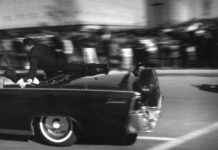Getting older is not part of the expectations of good rockers, but if the Fates are kind as they have been with Loquillo, it is time to decide whether to continue to the end with the flag of the crazy bird or look for new paths that lead to the Liceu, where the The tough guy from Clot only came as a young man to play at the nearby Tabú cabaret, or to see how the anarchists threw tomatoes at the Franco bourgeoisie who went to the opera. “From Tabú to Liceu there are 290 meters, it has taken me 46 years to travel this journey,” he said to the enthusiastic applause of the theater. “I’m from Barcelona, ??I know what it means to be here.”
It never ceases to surprise that, at 63 years old, Loquillo steps on the boards for the first time on the historic stage within the Mil•lenni festival, a venue where all types of artists have visited in recent decades since the Icelandic Björk uncorked in in 2001 the plug that limited the venue to opera and symphonic music. Isabel Pantoja, Kraftwerk, Status Quo, Raphael or Maria del mar Bonet among many other and varied artists have passed through the historic venue, forgetting in one way or another about José María Sanz, who performed on a three-story stage tinted in red and warm tones to break the curse.
There were hardly any toupees or toupees among the public that attended the collection of poems that has accompanied the Fool for three decades, the one that saved him in his day from sinking into the “Peterpanism” of the Troglodytes. Leaving aside Cadillacs and LA, he began with The Life I See, by Bernardo Atxaga, the first poet on a list that included Mario Benedetti, Julio Martínez Mesanza, Jaime Gil de Biedma, Cesare Pavese, Carlos Zanón and of course Aute ( From guts heart, which he sang sitting on a stool) Gabriel Sopeña and Luis Alberto de Cuenca, usual suspects in this adventure consisting of combining poetry and rock’n’roll.
He sang I like the frugal transgressions of Benedetti, the title song of the recently published compilation that this Friday night took over the evening with the only exception of Brillar y Shiner, by Sopeña, where he recognizes that his character “is the price I must pay ”, and The Man in Black by Johnny Cash, poet among cowboys, rocker among the disadvantaged. Gray toupee, black suit and the enormous plant he is used to, Loquillo mixed the two characters, the rocker and the heir of the French chanson who grew up with Johnny Halliday while Nova Cançó was playing through the streets of Barcelona. He did it accompanied by his usual band, with Josu García, Igor Pascual and Pablo Pérez on guitars, Alfonso Alcalá on bass, Laurent Castagnet on bass, German San Martín on keyboards and accordion, and the addition of Cristina Suey on the cello.
The Alley Cats gave way to Cesare Pavese’s Cats Will Know It, sprinkled with guitar solos, and there was no shortage of The Bad Reputation, the most celebrated, which in 1988 became the starting point for this new version of Loquillo, resting in the lyrics, but unable to change his rocker ways when interpreting With elegance, Jacques Brel’s ode to poorly handled old age that he sang from the audience, and that had its counterpoint at the end of the concert, where he claimed the freedom that no one has given him. having never received public aid, “I can do whatever I want, however I want and whenever I want”, to conclude by imploring that they let him die standing at a martial pace with Will for Good, I remember Sabino Méndez as Rusty was for Carlos Zanón, when who elevated him to the last great chronicler of a city that last night Loquillo conquered a little more, if this was possible.
























